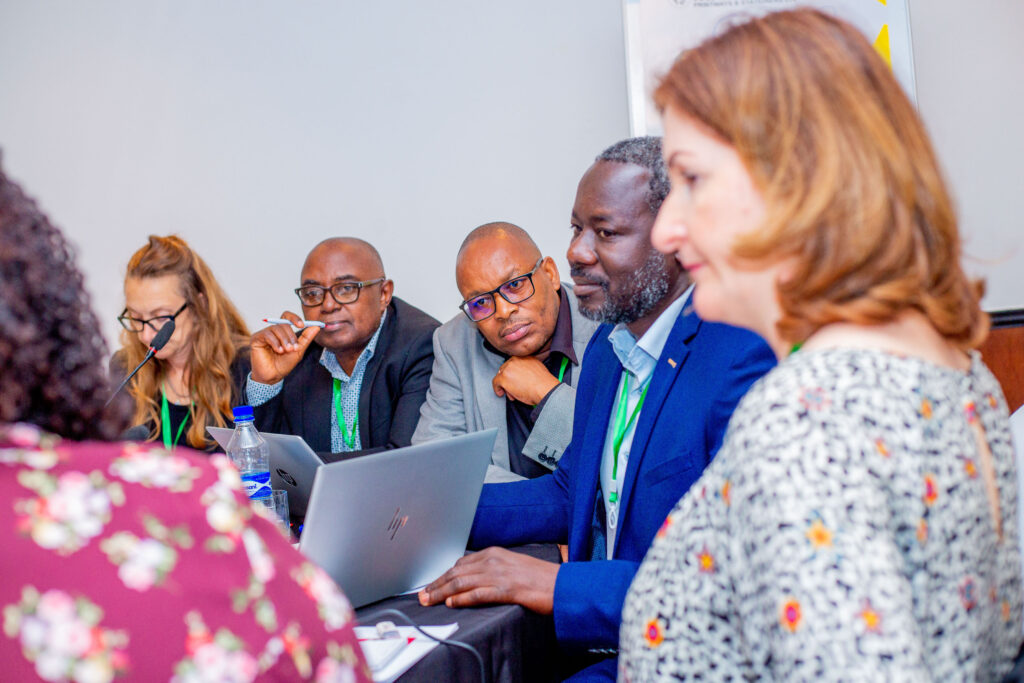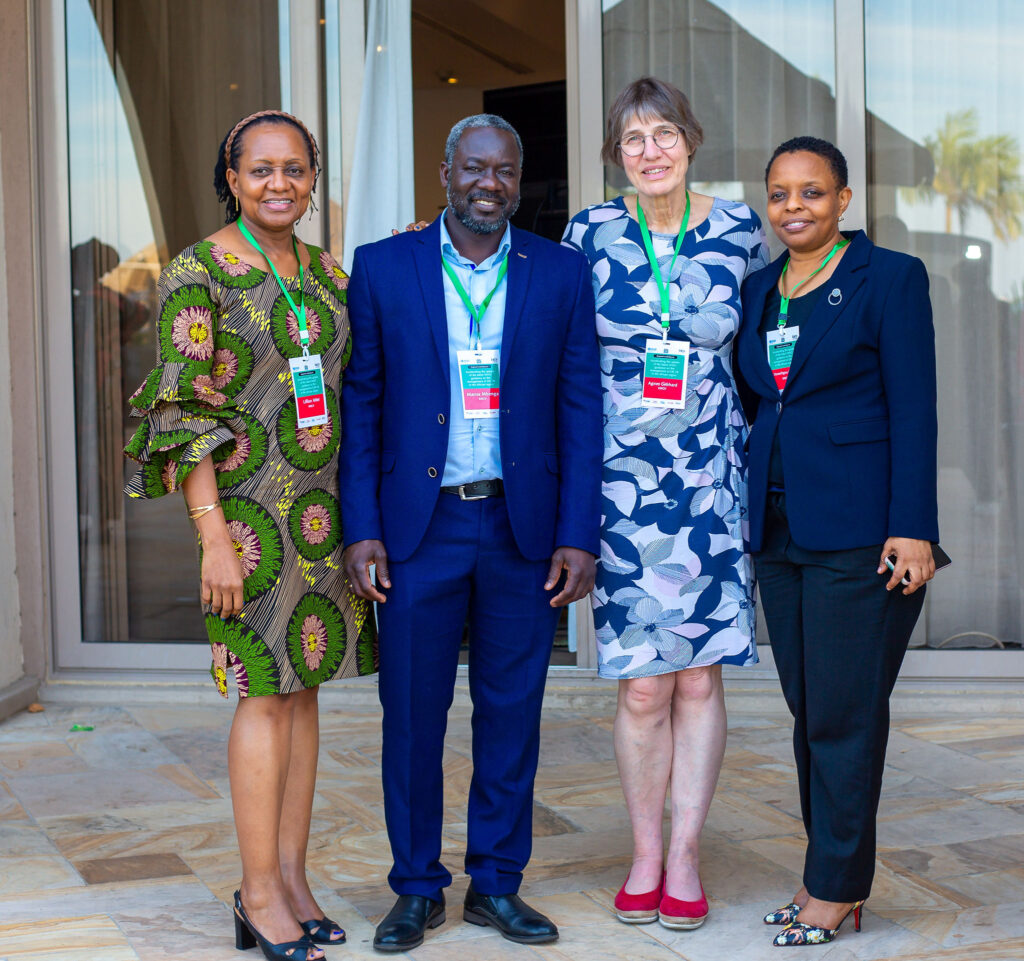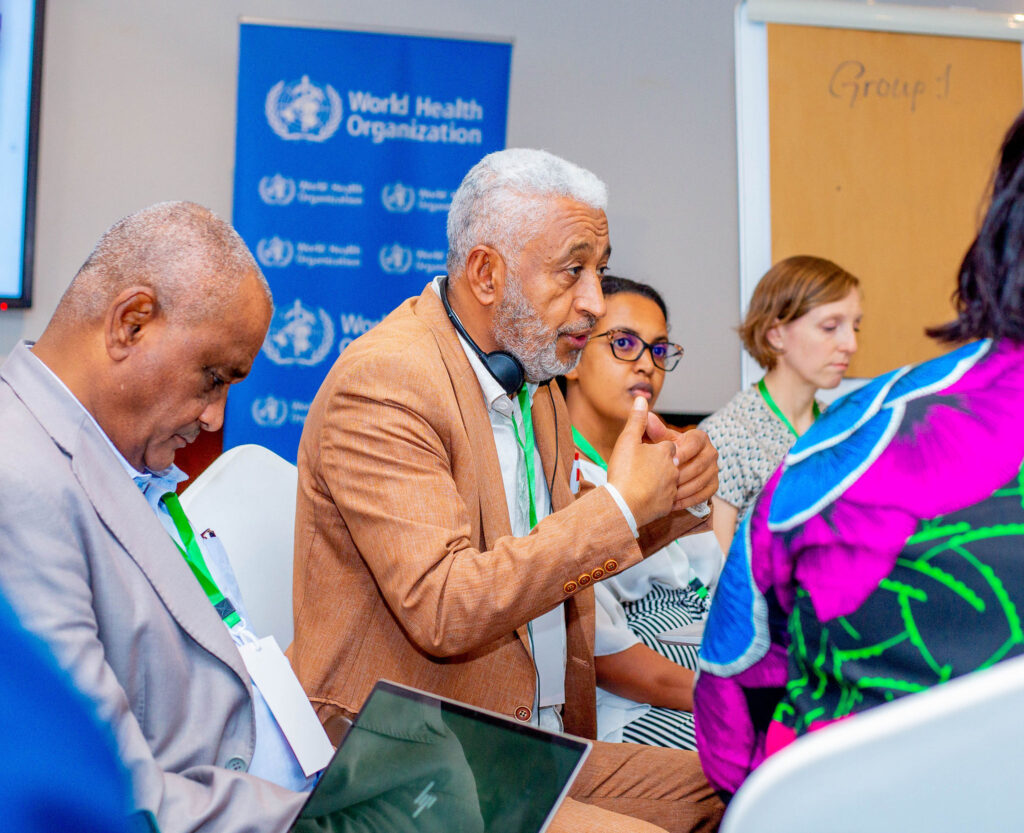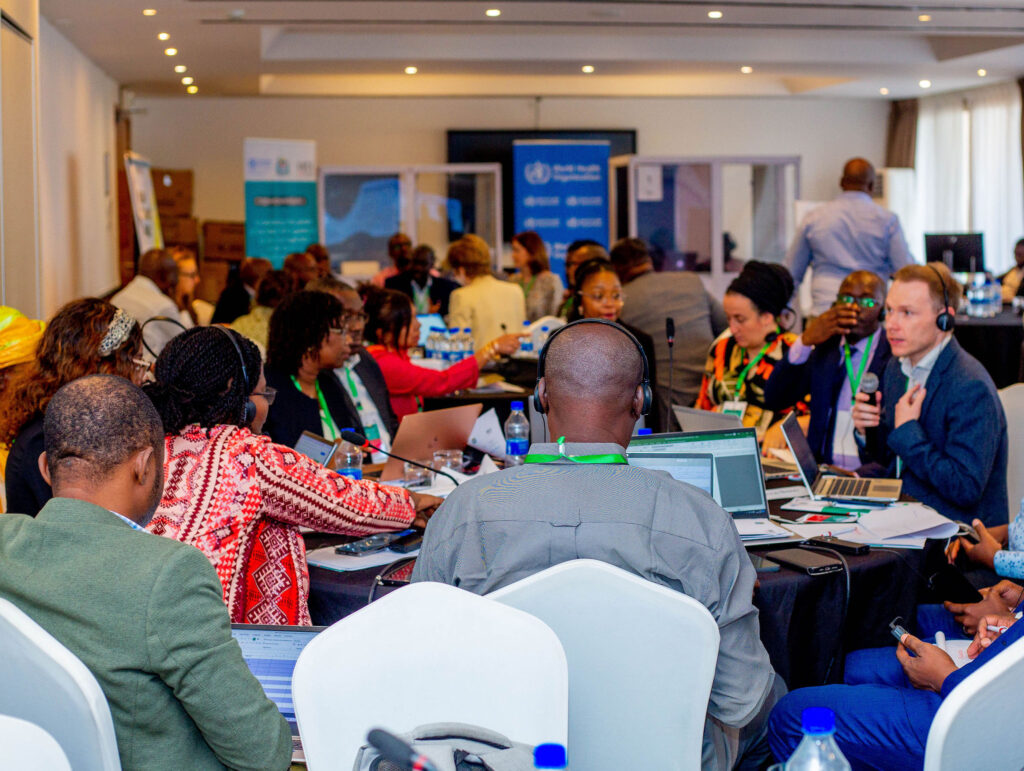Every year around half a million people develop Rifampicin Resistant/Multidrug Resistant tuberculosis (RR/MDR-TB). RR/MDR-TB is a massive public health and societal burden. Currently implemented treatments are long (9-18 months) and have a combined treatment success rate of only around 60%. The latest WHO guidance is a game-changer for shorter, safer, all-oral and more effective for DR-TB treatment. Along with our partners, we planned and executed a Regional Workshop on accelerating the uptake of the latest WHO guidance on the management of DR-TB in the African Region.
Many countries are preparing and planning the introduction of the shorter regimen. Once these regimens are mainstreamed, only a minority of people with drug resistant TB (DR-TB) will still require 9 – or 18-month treatment regimens e.g., children, pregnant women, and people with resistance to any of the BPaL based regimen drugs.
Importance of widespread access to new – shorter DR-TB treatment regimens.
If well-managed, wide-spread access to these new regimens will positively impact DR-TB treatment outcomes; if not well-managed, interruptions of treatment may lead to unfavorable individual treatment outcomes and the rapid occurrence of TB strains resistant to these regimens.
Therefore, important conditions for the eventual success of the shorter regimen should be accurately implemented in programmatic conditions including proper diagnosis of TB and adequate safety monitoring. To accomplish this, countries will need to update their national guidelines, train clinicians and healthcare personnel, secure adequate financial and human resources, and initiate the procurement of the regimen components.
The execution of a Regional Workshop in Tanzania
The ASCENT DR-TB project funded by Unitaid and led by KNCV Tuberculosis Foundation in collaboration with WHO AFRO regional office co-organized a regional meeting, providing an opportunity for country representatives to share their experiences and discuss the ways of overcoming barriers to programmatic introduction.
The workshop took place in Dar es Salaam, Tanzania on July 2 and 3, 2024. The primary goal of this workshop was to strengthen and facilitate the rapid and effective implementation of the latest WHO guidance on the management of DR-TB in the African region. By bringing together key stakeholders, experts, and representatives from participating countries, the aim was to accelerate the adoption of evidence-based practices and enhance programmatic approaches to DR-TB control.
The knowledge and tools gained during the workshop have the potential to drive tangible progress across countries.
Key topics covered throughout this event were:
- WHO policy updates, including epidemiology of TB/DR-TB and the status of programatic introduction of BPaLM in WHO AFRO.
- The Global Fund perspective on the accelerated implementation of the WHO recommended shorter regimens.
- Updated roadmap for DR-TB in children and adolescents.
- Launch of KNCV’s Self-assessment checklist and planning tool.
- Country experiences on self-assessment and planning (South Africa, Nigeria, Mozambique).
- Community and Civil Society Engagement.
- Country experiences on implementation and roll out of BPaL(M) regimen (Zimbabwe, Kenya, Namibia, Eswatini, South Africa).
- Availability on technical assistance packages and technical support for the management of DR-TB in the African Region.
- Market access overview provided by Clinton Health Access Initiative (CHAI).
Stay tuned for further developments and updates on the approaches taken by ASCENT DR-TB.
This event took place thanks to the joint efforts of World Health Organization African Region (WHOAFRO), KNCV Tuberculosis Foundation, Ministry of Health – Tanzania, Unitaid, PATH, The Aurum Institute, Treatment Action Group – TAG and Clinton Health Access Initiative – CHAI.




